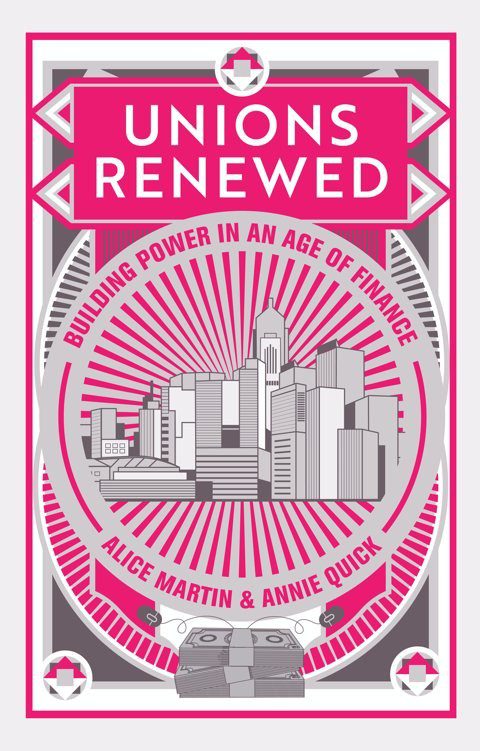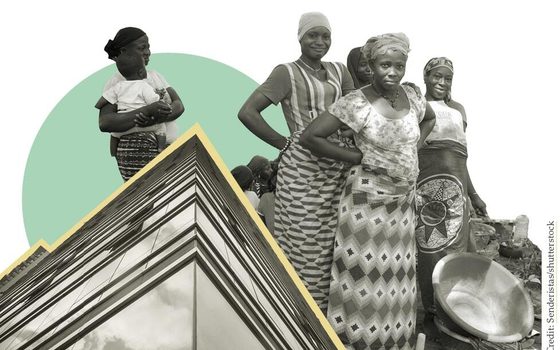How workers can take on big finance and win
A new book makes the case for a renewed role for unions in challenging financial capitalism.
25 September 2020

Unions Renewed: Building Power in an Age of Finance, by Alice Martin and Annie Quick
The impact of Covid-19 has been a powerful reminder of the leverage workers could collectively hold. Care workers, supermarket cashiers and couriers – usually dismissed as “unskilled” – have demonstrated how crucial they are to keeping society’s cogs turning. What would it take for these workers to become the transformational force in how we run the economy?
A crucial step is knowing the enemy. In Unions Renewed: Building Power in an Age of Finance we argue that the intense financialisation of capitalism over the past half a century has profoundly altered the context in which organised workers and their unions operate.
As shareholders, private equity firms and financially-driven executives find ways to make short-term returns through financial speculation, many workers find themselves sidelined. Profits are made not only from people’s labour, but increasingly from real estate, currency trading or the stock exchange – areas of the economy that fuel runaway inequality but in which the labor movement has little influence.
Meanwhile, multiple layers of subcontracting and the financialisation of firms themselves make it harder to identify your real boss. Without knowing who is profiting from your labour, you can’t build leverage against them. This is the bind that unions, struggling to make inroads into industries like care, are facing.
The antidote to financialisation is democratic ownership and control over more areas of the economy. These democratic structures would need to be ushered in and maintained by forms of deep-rooted collective bargaining in workplaces and communities. Currently, however, the interests of workers have been subsumed under those of capital owners in a myriad of ways. How then do we take the leap towards democratisation?
Multiple layers of subcontracting and the financialisation of firms themselves make it harder to identify your real boss. Without knowing who is profiting from your labour, you can’t build leverage against them.
One way is for workers, where they do still have substantial leverage, to maximise that power and demand more in negotiations. Rather than being constrained to pushing for narrow wage increases, unionised workers can push for bigger demands that are important to them, and the communities they work in. This kind of “bargaining for the common good” approach was most famously adopted when the Chicago Teachers Union won sanctuary for their migrant students and even attempted to address Chicago’s financialised housing market as part of their school contract negotiations.
We provide examples in the book of how, in our financialised economy, people are organising both in and beyond work, including through rent and debt strikes, and using their voting rights as shareholders to wield power over big business. Workers are building alternative ownership models, including union co-operatives which cut off the opportunity for profit-seeking at source.
As cracks in our economy deepen under Covid-19 there is an opportunity to challenge financial and corporate interests and force transparency and control over more areas of our lives. It won’t be easy, and the pandemic has raised the stakes, but there has never been a more critical time to try. This book’s contribution is to explore the way in which finance has changed the way we work, and how, in our role as democratic agents, we can respond.
Unions Renewed is written by Alice Martin and Annie Quick and is published by Polity and the New Economics Foundation.
Campaigns Share the wealth






